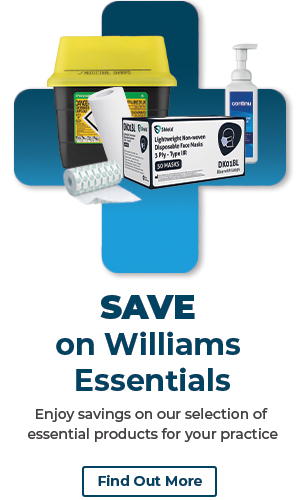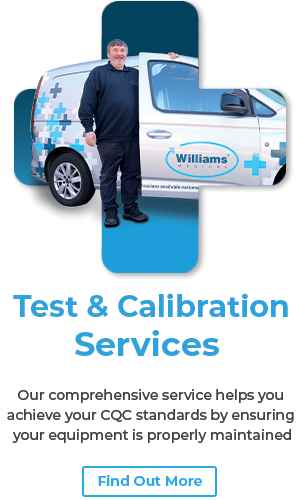26th June 2025
Cervical Screening: What to Expect, Why It Matters & How to Book Your NHS Smear Test
What if we told you that 8 out of 10 cervical cancer cases could be stopped — simply by attending a routine screening?
That’s the power of prevention. According to GOV.UK, up to 83% of cervical cancer cases could be prevented if everyone eligible attended their smear tests regularly.
Yet approximately one in four eligible people skip their NHS smear test.
Anxiety, misinformation, and uncertainty about what the procedure involves often holds people back.
If you’re feeling nervous or unsure, you’re not alone.
Many people feel the same way before their first cervical screening. But understanding what to expect can make all the difference.
This article will clearly explain what cervical screening is, why it matters, and how easily you can book and prepare for your appointment - helping you take charge of your health confidently.
What Is Cervical Screening?
Cervical screening — often called a smear test — is a quick and simple procedure that checks the health of your cervix, which is the lower part of your womb.
It’s designed to spot early signs of potential problems before they become serious.
The test looks for high-risk types of human papillomavirus (HPV), a very common virus that can sometimes cause changes in the cells of the cervix.
Most people will have HPV at some point in their lives, and in many cases, it clears up on its own.
But in some cases, it can lead to abnormal cell changes that, if left untreated, could develop into cervical cancer.
Catching these changes early means they can be monitored or treated before they become a risk to your health.
That’s why cervical screening is one of the most effective tools we have for preventing cervical cancer — and why attending your appointment really matters.
Why is Cervical Screening Important?
Cervical screening isn’t just another appointment on your calendar — it’s a powerful way to take control of your health.
By attending regularly, you’re doing something proactive and potentially life-saving.
The test can detect early changes in cervical cells, often before any symptoms appear.
These early changes can be treated before they develop into something more serious, like cervical cancer.
Screening helps:
• Spot abnormal cells early
• Prevent cervical cancer from developing
• Give you peace of mind through regular, proactive care
When it comes to cervical cancer, early detection truly saves lives, and gives you the best chance of catching changes early - when they’re easiest to treat and manage.
Cervical Screening in Numbers
Understanding the bigger picture can help you feel more confident about your own screening journey.
Here are some key cervical screening facts from the latest NHS data:
• 68.8% of eligible people aged 25 to 64 were screened in the past year - a small but positive increase from the year before.
• Over 5.1 million people were invited for screening in 2023–24, showing the scale and reach of the NHS programme.
• Around 3.25 million people attended their screening appointment.
• 251,251 referrals were made to colposcopy clinics for further checks - an important step in early detection and prevention.
These numbers show that millions of people across the UK are taking proactive steps to protect their health.
By attending your screening, you’re joining a powerful movement of prevention and early action.
Understanding Cervical Cancer
Cervical cancer develops when abnormal cells in the cervix begin to grow in an uncontrolled way.
Over time, these cells can form tumours and, if left untreated, may spread to other parts of the body.
One of the main causes of cervical cancer is persistent infection with high-risk types of human papillomavirus (HPV).
HPV is incredibly common — most people will contract it at some point — but in most cases, the body clears the virus naturally without any issues.
However, when the virus doesn’t go away, it can cause changes in the cervical cells that may eventually lead to cancer.
That’s why regular cervical screening is so important. It doesn’t test for cancer itself, but it helps detect HPV and early cell changes before they become dangerous.
With early detection, treatment is often simple and highly effective — making screening one of the best ways to protect yourself.
How Often Should You Have Cervical Screening?
Understanding when you’re eligible for cervical screening — and how often you should attend — can help you feel more confident and in control of your health.
GOV.UK offers clear, age-based guidance to make it easy to stay on track and prioritise prevention.
Cervical screening is offered to people with a cervix aged 25 to 64.
You’ll automatically receive an invitation when it’s time for your test, as long as you’re registered with a GP.
The frequency of screening depends on your age:
• Every 3 years if you’re aged 25 to 49
• Every 5 years if you’re aged 50 to 64
These intervals are based on evidence showing how cervical cell changes typically develop over time.
By following this schedule, you’re giving yourself the best chance of catching any issues early — when they’re easiest to treat and manage.
If you’ve missed a screening or think you’re overdue, you don’t need to wait for another letter.
You can contact your GP surgery at any time to check your status and book an appointment.
Booking & Accessing NHS Cervical Screening
Booking your cervical screening appointment is often quicker and easier than people expect — and it’s one of the most important steps you can take for your long-term health.
Whether it’s your first time or you’re due for a follow-up, the NHS has made the process simple and accessible.
You can book by contacting your GP surgery directly or using NHS online services, depending on what’s available in your area.
Taking that first step might feel daunting, but it’s a powerful act of self-care.
You’re prioritising your wellbeing, and that’s something to feel proud of.
How to Book a Cervical Screening Test through the NHS?
Booking your cervical screening is quick and straightforward.
Whether it’s your first time or a routine follow-up, the NHS makes it easy to take that important step.
• Contact your GP surgery
• Use NHS online booking services
Don’t wait for the “perfect” time — booking today could make all the difference tomorrow.
Preparing for Your Appointment
A little preparation can go a long way in making your cervical screening as smooth, accurate, and stress-free as possible. Knowing what to expect and how to get ready can help you feel more confident on the day.
Before You Book
Try to avoid scheduling your appointment during your period, as this can affect the clarity of the sample. If your period is irregular or arrives unexpectedly, don’t worry - you can always reschedule.
In the 24 Hours Before Your Test
To help ensure the most accurate results:
• Avoid using vaginal creams, lubricants, or medications
• Refrain from sexual intercourse
• Don’t use tampons or internal products
These small steps help your nurse get a clear sample and reduce the chance of needing a repeat test.
On the Day
There’s no need to shave or groom — your comfort is what matters most.
Wear something you feel relaxed in, and remember, you’re in control throughout the appointment.
If you’re feeling nervous, it’s okay to bring a friend or ask for a female practitioner.
Taking a few moments to prepare can help you feel more at ease — and ensure your screening is as effective as possible.
After the Test: Results & Follow-Up
Once your cervical screening is complete, it’s completely normal to feel a mix of relief and anxiety while waiting for your results.
Many people feel this way — especially if it’s their first test or they’ve had a previous abnormal result.
The good news is that most results come back normal, meaning no high-risk HPV was found and no further action is needed until your next routine screening.
If HPV is detected, your sample will be checked for any abnormal cell changes.
Even if changes are found, they’re often minor and can be monitored or treated before they become serious.
You’ll usually receive your results by post within two to six weeks.
If your results take longer, don’t hesitate to contact your GP surgery for an update — it’s okay to ask questions and seek reassurance.
If further tests are needed, such as a referral to a colposcopy clinic, this doesn’t mean you have cancer. It simply means your healthcare team wants to take a closer look to keep you safe and well.
Remember, cervical screening is about prevention — and catching changes early gives you the best chance of staying healthy.
Private Cervical Smear: Is it Right for You?
While the NHS offers free cervical screening to eligible individuals, some people choose to go private for added convenience or peace of mind.
Private cervical smear tests can offer faster results, more flexible appointment times, and sometimes a wider choice of locations or practitioners.
This option may be especially appealing if you’ve had difficulty accessing NHS appointments, need results quickly for travel or personal reasons, or simply prefer a more tailored experience.
However, it’s important to note that private screening comes with additional costs, which vary depending on the provider.
Before deciding, consider what matters most to you — whether it’s speed, flexibility, cost, or continuity of care.
Both NHS and private screenings follow the same clinical standards, so whichever route you choose, you’ll be receiving a safe and effective test.
The most important thing is that you feel informed, supported, and empowered to take care of your health in a way that works for you.
FAQs About Cervical Screening
It’s completely normal to have questions, especially if it’s your first time or you’ve had a difficult experience in the past.
This section is here to give you clear, honest answers to the things many people wonder about but don’t always ask.
Yes - cervical screening is one of the most effective ways to prevent cervical cancer. Even if you feel completely fine, screening can detect early changes in cervical cells before symptoms appear. It’s a simple test that could save your life, and attending regularly gives you the best chance of staying healthy.
If you’re registered with a GP, you’ll be invited automatically when you’re eligible. Cervical screening is offered to people with a cervix aged 25 to 64 in the UK. You don’t need to do anything to sign up — just make sure your GP has your correct contact details. If you think you’ve missed an invitation or aren’t sure if you’re registered, contact your GP surgery and they’ll help you get set up.
Yes — the HPV vaccine doesn’t protect against all types of the virus. While the vaccine is a powerful tool in preventing cervical cancer, it doesn’t cover every high-risk strain of HPV. That’s why regular cervical screening is still essential, even if you’ve been vaccinated. Screening checks for HPV and early cell changes, giving you the best chance of catching anything early.
Yes, but it’s usually postponed until after you’ve had your baby. If you’re pregnant and due for cervical screening, let your GP or midwife know. In most cases, the test will be delayed until around 12 weeks after giving birth, when it’s safer and more comfortable. If there’s a medical reason to screen during pregnancy, your healthcare provider will guide you through the process.
You don’t need to do much — just a few simple steps can help make your test more accurate and comfortable. Try to avoid using vaginal creams, lubricants, or medications for at least 24 hours beforehand, and don’t schedule your appointment during your period if possible. It’s also best to avoid sexual activity the day before your test. Wear something comfortable and remember — there’s no need to shave or groom. The focus is on your health, not how you look.
No — there’s absolutely no need to shave or groom before your appointment. Your nurse or doctor is focused on your health, not your appearance. The test is quick, respectful, and designed to make you feel as comfortable as possible.
For most people, it’s not painful - but it might feel a little uncomfortable. Everyone’s experience is different. You might feel some pressure or mild discomfort, but the test only takes a few minutes. If you’re nervous or feel any pain, let your nurse know — they’re there to support you and can pause or adjust the procedure at any time.
The test checks for high-risk HPV and any changes in the cells of your cervix. Cervical screening doesn’t diagnose cancer - it’s designed to catch early warning signs before anything serious develops. If HPV is found, your sample is checked for abnormal cells so that any changes can be monitored or treated early.
Things like recent sex, vaginal products, or your period can affect the accuracy of your results. To get the clearest sample, avoid intercourse, vaginal creams, or medications for 24 hours before your test. Try not to book your appointment during your period, as menstrual blood can interfere with the results. These small steps help reduce the chance of needing a repeat test.
You’ll usually get your results within two to six weeks. If HPV is found, your sample will be checked for abnormal cells and you may be invited for further tests. Most results come back normal, but if you’re worried or haven’t heard back after six weeks, contact your GP surgery for an update.
That’s okay - you can rebook at any time. Life gets busy, and it’s common to miss a screening. The important thing is to reschedule as soon as you can. You don’t need to wait for another letter - just contact your GP or use the NHS online booking system. It’s never too late to take that step.



